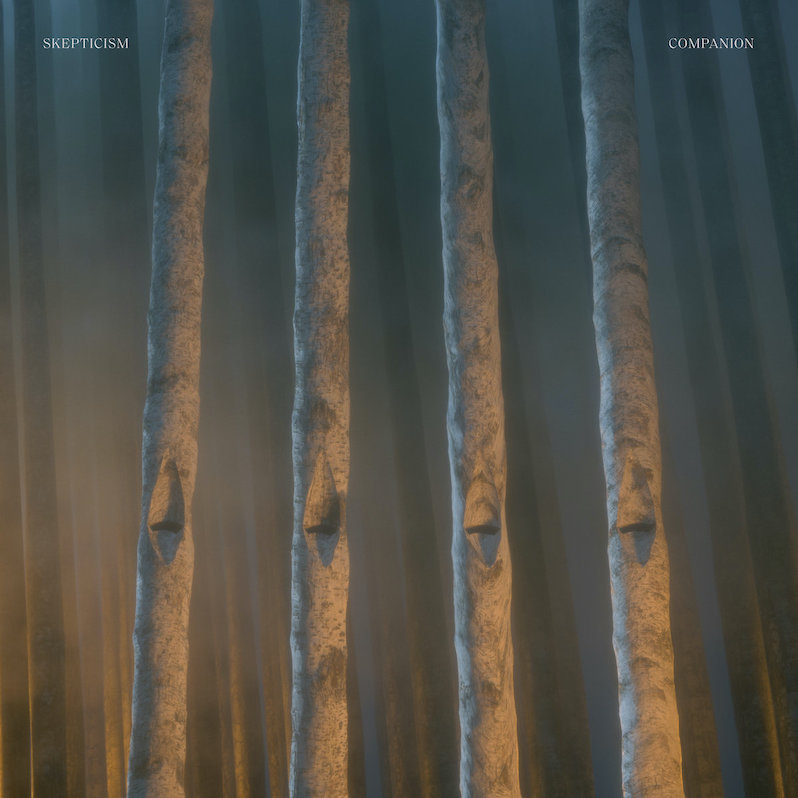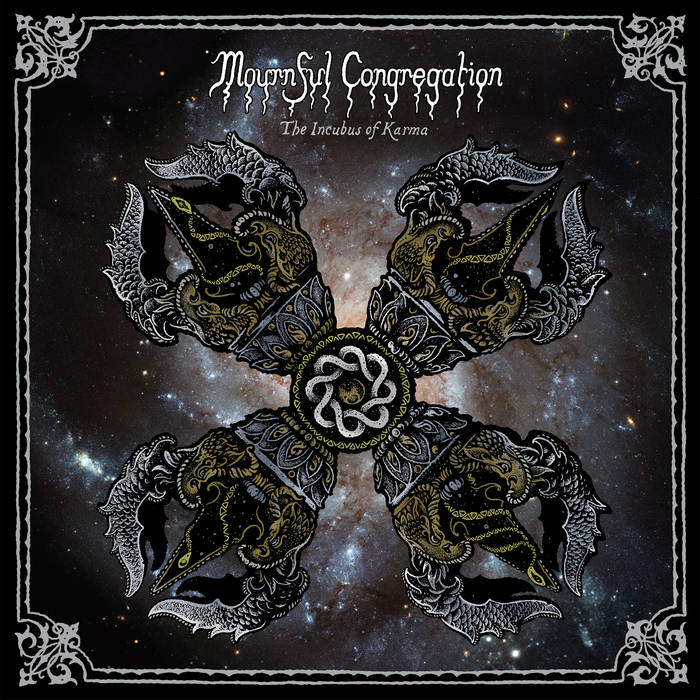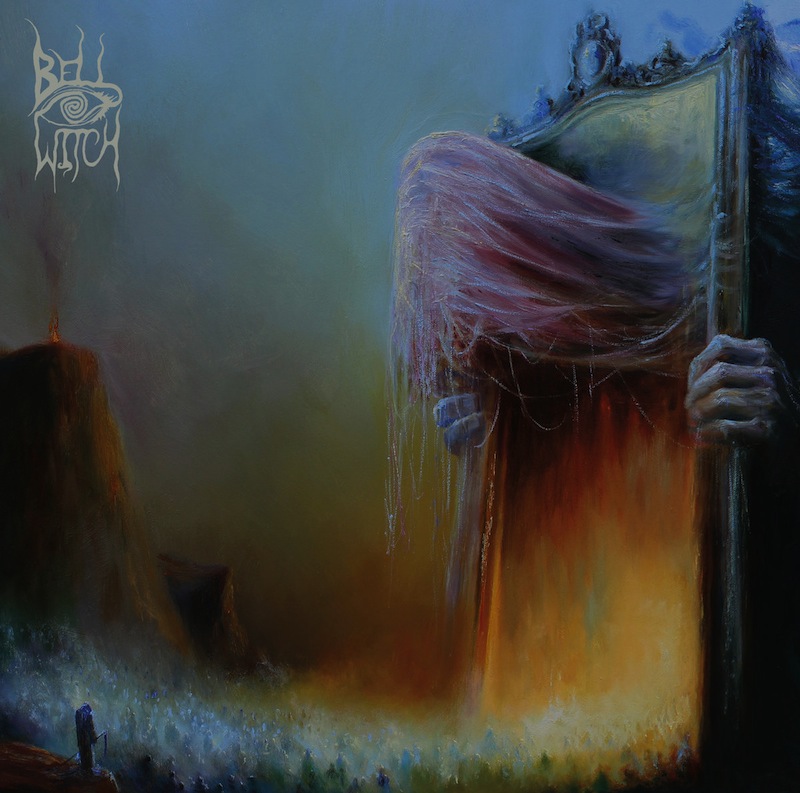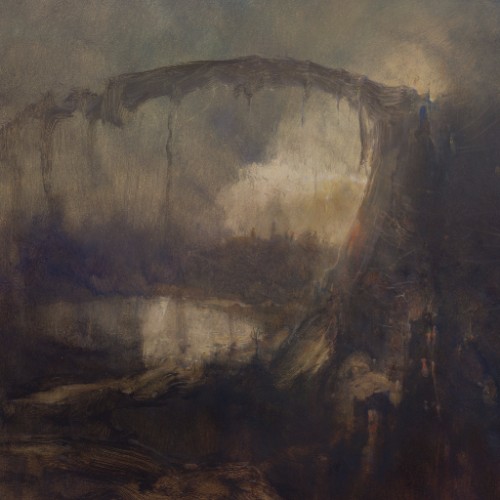Skepticism : Companion

Skepticism are not in the business of rocking the boat. The band emerged nearly fully-formed, dabbling briefly in previous groups with more explicit approaches to black and death metal before cutting a single demo under the name Skepticism in a close approximation of those styles before upending things completely and becoming one of the key founders of funeral doom as we know it. Sure, one can look back and find key moments in the great doom bands of the ’70s and ’80s as well as some key psych recordings of the ’60s and forward to see where the specific inspirations may have come from, especially their particular approach to the use of organ as a driving instrument, but they are arguably the key band in understanding the proper eruption of the sound proper. Skepticism’s devotion to keeping their work within relatively narrow constraints is evidenced even in their album lengths; every LP, including this one, has exactly 6 tracks, a trait deliberately held in keen discipline over the band’s roughly thirty year history.
Granted, they make up for this austere approach to aesthetic development in a few key ways. First is the glacial pace of their new material; despite their 30-year history, Companion is only their sixth LP and ninth overall release, making the limits of advancements to their sound substantially more understandable. This is a group that produces Skepticism records, has demonstrated over decades they know exactly what that means, and then are decent enough to wait until we are hungry for exactly what they offer before giving one again. The length of time also makes clear that their sonic approach, one which sees mostly fine-tuning adjustments, is a deliberate one. It is obnoxious at times for bands to tout their new record as featuring interesting new textures and experiments only to wind up sounding and feeling the same, covering identical emotional, imagistic and aesthetic ground. Skepticism do the exact opposite: you are here not just for funeral doom in general, but for the specific organ-led and guitar-embroidered approach to funeral doom that Skepticism offer.
A throughline on Companion is how resolutely non-metal it can feel for long stretches. This is identical to similar sensations one can find on Sunn O))) or certain Kayo Dot records, a tendency toward using metal instrumentation and even methods of metal riff construction to gesture toward something closer to contemporary classical music or orchestral work than, say, Judas Priest or other NWOBHM greats. Little touches of the band’s instrumentation nod toward the fact that they understand this; the drummer, for instance, plays with felt mallets rather than sticks, with only the punctuating snare borrowed from rock and enhanced by metal remaining as the real tie to heavy metal drumming. Vocals pass like sheets of billowing darkened clouds, occasionally refined enough to parse a word or two but otherwise feeling more like an orchestral arranger’s use of traditional viking song, low and guttural, to produce a certain keenly Nordic texture. Guitars here act more often like chordal instruments, laying walls of sound for the organ to embroider or play with rather than being the driving force of the compositions. A strange thing emerges from this organ-and-voice led approach: Companion begins to feel like songs of the sea.
This aesthetic tie is one that can be felt over all their work, to be sure, as well as one not uncommon in funeral doom spaces. Ahab, for instance, famously are beloved precisely for their tenebrous odes to the terror of the immortal sea. The difference is a sense of psychic place. Ahab’s material, rife with whales and water and the endless rows of waves like teeth, an image Bell Witch as well have employed, is set clearly on the water itself, within a boat, puny and small. Skepticism’s is more quiet and literary. There is a novel by Danish author Carsten Jensen titled We, The Drowned which covers the life of those that work the sea on a Danish fishing isle over the span of centuries, ending in their involvement in World War II. Companion often feels closest to this sentiment, or the those of the seaside agonies in Ingmar Bergman films. These are songs of the people who work the sea, in tight corded sweaters and labor on the docks and piers, the women and children who sometime wake to find they will have no fathers and the absent funerals with empty caskets for those swept away. It’s an association driven mostly by instrumentation and light gestures of titles and lyrics less than something hammered home explicitly by album art or the like, but this feels like it speaks more to Skepticism’s restrained and more mature deployment of imagistic ties. There is a sense of trust; these songs may have a setting, but what matters is the feeling within that setting, the literary function rather than the plot.
Which touches on one of the key accomplishments of Companion, a thing that can be said for Skepticism in general. Though they err more toward the ambient-leaning side of this kind of music, with only really Farmakon and the remix of Stormcrowfleet approaching what could be considered active listening, they manage to make these glacial and deeply emotional spans work in subliminal form without being boring or ignorable. Those that have been to funerals know that while there are moments in the arc of grief that feel boiling, present, like fire against the skin, there are also long stretches of gray, psychic spans where active-driven music wouldn’t really capture the real heft of that emotional space. The length of time it takes to conceive new Skepticism records feels in part because they take entering that cloistered realm seriously; this is why, over their 6 LPs, they haven’t released a single dud and are considered one of the greatest of the genre and why even contemporary greats like Ahab and Bell Witch find their greatness in part by comparison to them. Companion is a new wrinkle within that space, one that adapts the willingness toward gentle gestures of more explicit song from Alloy measured against the washing waves of Lead and Aether or Aes. There is no surprise on it and, if given to a newcomer to the band, you could convince them this was the group’s first record as easily as their most recent. But this is only because of the resolute consistency of quality from the group, a consistency born from knowing exactly who and what they are as a band and knowing exactly what they must deliver. These are kings still possessed of full power and regality and we’re lucky to still have them around.
Label: Svart
Year: 2021
Similar Albums:
Langdon Hickman is listening to progressive rock and death metal. He currently resides in Virginia with his partner and their two pets.




